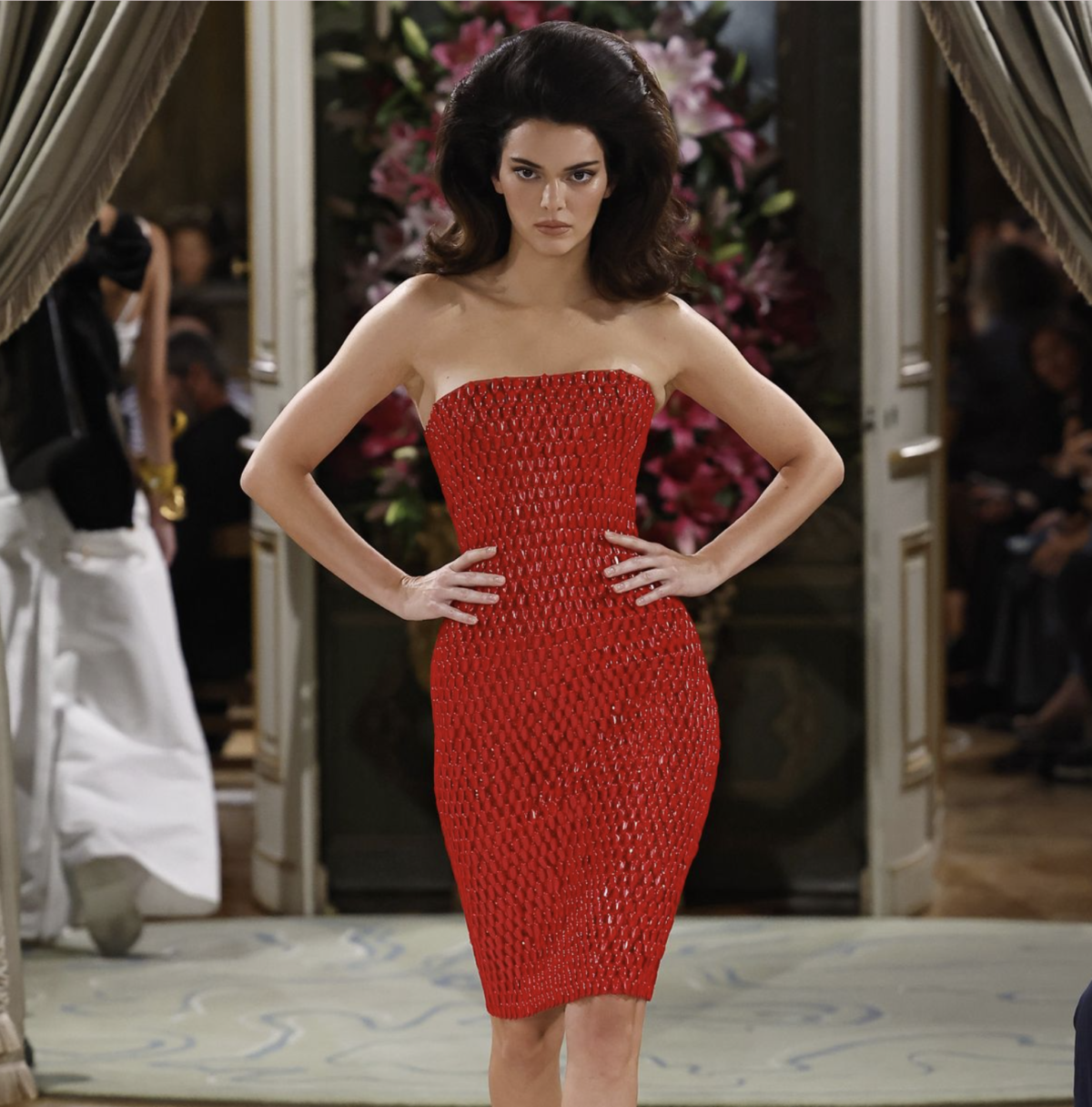In a dazzling red dress covered in what appeared to be crystal acrylic fingernails, model Kendall Jenner donned a retro beehive hairstyle, glued her hands firmly to her hips and closed the Schiaparelli spring/summer 2024 womenswear show. Videos circulated online of the look, and Jenner met an outpour of comments not about the dress but about her walk.
“Jenner is cool for walking big brands, but her walk is giving us nothing as always,” one Twitter user wrote. “It just doesn’t GIVE for some reason,” said another.
The comments circulated yet another rendition of the ongoing debate about “Nepo Babies” — kids with parents in high places who pull their children up with them. Jenner, who hails from the infamous Kardashian clan, is one of the more notorious nepotism beneficiaries, having been criticized for not having the talent or work ethic to be a model of her status. Jenner is one of the highest-paid models in the world, a seemingly unlikely accomplishment for someone who can’t seem “to give.” And yet Jenner continues to open for top brands and appear on front covers, exemplifying the central debate around celebrity nepotism: do the actors, models and singers born to other famous actors, models and singers truly deserve their stardom?
It’s inherently frustrating, yes, to see a young person catapulted to exponential levels of fame and success with relatively minimal work. There are plenty of people who would give anything to be in their place and are actively working to get there, only without the connections of a model mother or director father. Nepotism as a practice goes against the central ethos of the American dream: work hard enough and you can achieve success, no matter where you start. You could be the hardest worker or the most talented, and you still might lose out to Johnny Depp’s daughter. This doesn’t necessarily mean that Nepo Babies are bad at what they do — some of them are actually quite good. It just means that the slim margin of people that get in without a famous family has to be really good. The merits of their success are measured at a higher standard than the nephew of a Paramount executive; one had to earn it while the other didn’t.
It’s a distinctly American ideal that you have to “earn” your share; nepotism has existed forever in the monarchies and dynasties of the rest of the world. Ask Prince William how he got to where he is and he most likely won’t say “a lot of hard work.” If you had the wealth, privilege and capabilities to have an artistic career and you grew up around people who made their living doing the same thing, what do you think you would do? Our societal grudge against Nepo Babies stems not from the inherent “unfairness” of the practice but from what it represents about our country. Celebrity nepotism is a microcosm of wealth and influence that reminds us of the power imbalance that has forever existed in the US; it subverts the ideals of the American dream and reveals a small part of the dark underbelly of injustice that has shaped our history. Nepotism exists everywhere, not just in Hollywood. It exists in corporate workplaces, housing offices and universities — those places just hide it better. We see people like Kendall Jenner and become acutely aware that our beloved “American dream” is more of a myth than Jenner’s ability to walk. We don’t blame Nepo Babies for taking advantage of what they have — we lament that the structure of this country made it so that we can never have it, too.
No one enjoys having the safety blanket of the American dream ripped off their shoulders; it’s been ingrained in our nation’s identity as an explanation for the pervasive inequality we face every day. It’s easier to accept that you didn’t get where you wanted to be because you didn’t work hard enough, not because generational power structures exist to keep you where you are. It’s hard for the idea of the “Nepo Baby” and the American dream to exist simultaneously, and thus a widespread cognitive dissonance exists within our culture. We want to acknowledge the inequality of their fame while maintaining hope that we could get there, too, given that we work hard enough. This is the true Nepo Baby debate: not how much they’ve “earned” their success, but how much of a chance we still have at achieving our own.
- To Nepo or Not To Nepo - November 9, 2023

